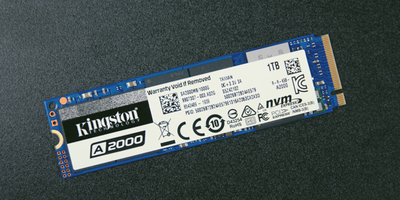
My experience with the Kingston A2000 1TB NVMe M.2 SSD SA2000M8/1000G (2024)
My thoughts on the Kingston A2000 1TB NVMe M.2 SSD: performance, installation, system upgrades, and data security.
Introduction
I recently upgraded my computer's storage to the Kingston A2000 1TB NVMe M.2 SSD - it's been quite a worthwhile upgrade. In the past, I've hesitated to switch to NVMe SSDs because of the price, but this drive offered a tempting combination of affordability and performance. With consistent read and write speeds that really speed up my daily tasks, I'm finding my computer is running smoother than ever. I've been using it for both work and gaming, and the difference in load times and file transfers is noticeable.
Some photos (click to enlarge)
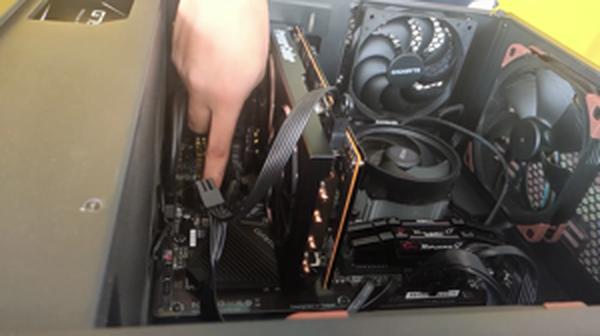
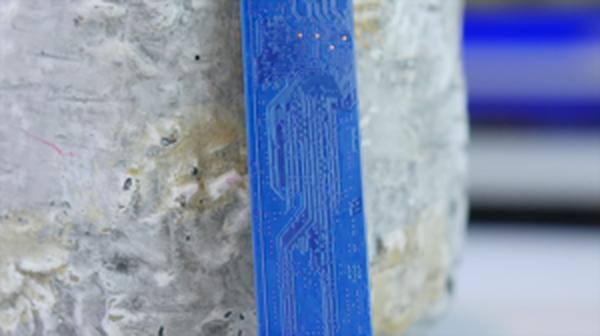
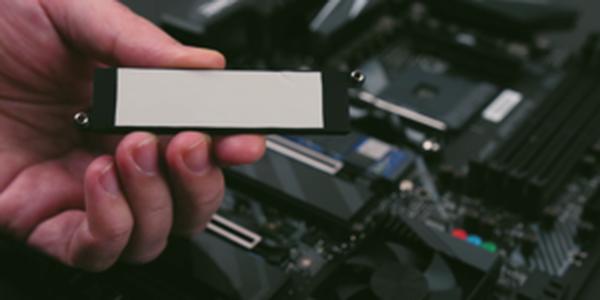
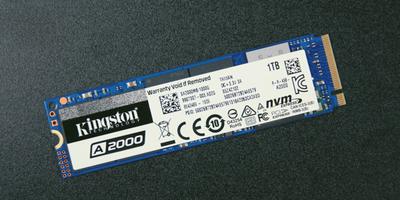
Specs of the Kingston A2000 1TB NVMe M 2 SSD SA2000M8/1000G
- Release Year
- Brand
- Compatible Devices
- Color
- Connectivity Technology
- Digital Storage Capacity
- Hard Disk Form Factor
- Hard Disk Interface
- Hard Disk Size
- Installation Type
- Special Feature
Prices
Impressive Performance and Value of Kingston A2000
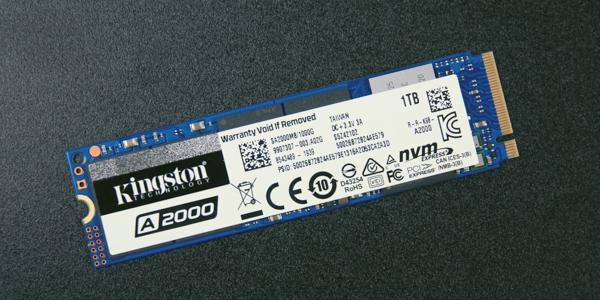
As someone looking for a balance between cost and performance in SSD upgrades, discovering the Kingston A2000 was a bit of a revelation. It's not every day that you find an SSD that promises NVMe PCIe performance without the hefty price tag usually attached to it. Initially, I was skeptical, but the read/write speeds up to 2,200/2,000MB/s are nothing to scoff at. Here's a quick rundown of my observations:
Speed: The difference is clear when coming from a SATA SSD or a traditional hard drive. My system boots up in a snap, and applications launch without hesitation.
Price: Value for money is significant here. The A2000 offers speeds comparable to more expensive drives, making it a wise choice for budget-conscious users.
Compatibility: Its M.2 design means it fits neatly into compact systems like ultrabooks or SFF PCs, which is a big plus for me since I'm using it in a mini ATX tower.
However, it's not without its shortcomings. The drive's 350TBW (total bytes written) rating isn't top-of-the-line, which might be a concern for heavy users like video editors, but it's more than adequate for someone like me who's using it primarily as an OS and game storage drive.
Security features are a welcome addition with XTS-AES 256-bit encryption, providing peace of mind that my data is safe, although I must admit this isn't my primary concern as an average user.
For perspective, here's the kind of experience I'm getting with the A2000:
My boot times with Windows 10 have been cut significantly. What used to be a dull waiting game is now a brief pause before I'm greeted with the login prompt.
Gaming has seen a noticeable improvement. Load times are shorter, meaning I spend more time playing and less time waiting.
The single-sided design is a small detail that I appreciate, as it means no additional bulk in my system, which is critical for my mini ATX tower's airflow and space management.
On the flip side, users expecting the world might find the A2000 a little too "entry-level", but that's the trade-off for the budget-friendly price. For anyone like me, who needs a nifty upgrade without breaking the bank or compromising on too much performance, this drive is a contender.
In wrapping up my part of the conversation with myself, the Kingston A2000 has proven to be a workhorse that offers speed, security, and value—it's definitely added a zing to my day-to-day computer use. Sure, it might not be the fastest on the market, but for what it costs, it's landed itself as my thrifty little secret for a quick PC pick-me-up.
Seamless Installation and Compatibility

When upgrading or building a PC, finding components that offer easy installation and broad compatibility is essential—especially with an NVMe SSD. My recent experience with the Kingston A2000 1TB NVMe M.2 SSD was more straightforward than I anticipated. Here's a quick rundown of the process that I followed:
Checked the motherboard's compatibility: My motherboard had an M.2 slot that supports NVMe, crucial for full SSD performance.
Updated my BIOS: Ensuring that the latest version was installed for best SSD support.
Physically installed the SSD: Slotted it into the M.2 connector and secured it with a screw—a seamless fit.
Set up in BIOS: Changed boot order if necessary and made sure the slot was set to x4 mode for maximum bandwidth.
From unboxing to booting from the SSD, there were no hitches—the kind of plug-and-play installation that anyone who's ever slotted in a USB drive would appreciate. The A2000 was recognized immediately by both the BIOS and the Windows installer, meaning I could get straight into loading my operating system without any compatibility nightmares.
What also impressed me was the practicality of its form factor. Being a single-sided slim M.2 design, it slotted perfectly into my ultra-book without adding any bulk—something at a premium in small-form-factor PCs and HTPCs. And for those worried about upgradability, the transition from older SATA SSDs or even HDDs to this NVMe SSD was refreshingly straightforward.
However, keep in mind the A2000's endurance rating of 350TBW (terabytes written). While it might not be a game-changer for the average user, content creators and those constantly moving large files will want to consider longevity implications.
In summary, installation and compatibility received a big thumbs up—no convoluted procedures or desperation when searching for a lost manual. The Kingston A2000 slipped into my digital life like a missing puzzle piece, providing a hassle-free upgrade that translated into immediate performance gains. While its endurance may not be top-tier, for the price and convenience, it's a solid choice for the typical user looking to breathe new life into their system.
Enhancing Gaming and Workstation Performance

Upgrading to an NVMe SSD was a game-changer for my computing experience, especially for gaming and intensive workstation applications. Here's my take:
Speed: Loading games and transferring large files previously took ages. Not anymore, as the Kingston A2000 delivers a much-needed speed boost.
Efficiency: I've definitely noticed quicker boot times and snappier application launches.
Heat: Unlike my old SATA SSD, this drive runs cooler, which is a huge plus for my compact PC build.
However, when it comes to the gaming experience, the difference was significant. Games that used to stutter during load times now run smoothly, creating a seamless transition into immersive worlds. For someone like me, who spends hours both working and gaming, this isn’t just a convenience—it's a necessity.
Working with large files on creative software also used to test my patience. Now, with the A2000, I can edit videos and navigate through high-res images without the drag, significantly improving my workflow efficiency. The 1TB capacity is more than enough for my current project files, and the speedy read/write operations have saved me countless hours.
From a personal perspective, installation was a breeze, even for someone who isn't particularly tech-savvy. It was as simple as plugging it into the M.2 slot, and my system recognized it immediately—no fuss.
I have to mention the downside, though; the endurance rating of 350TBW might raise some eyebrows for heavy users, especially in professional environments where constant read/write operations are the norms. Longevity is always a concern, but for regular gaming and workstation use, this hasn't posed an issue yet for me.
Finally, the built-in encryption is a thoughtful addition that gave me peace of mind, considering the sensitive nature of some of my work files.
The bottom line: The Kingston A2000 1TB NVMe M.2 SSD fulfills its promises. It's not the end-all-be-all of storage solutions, and there are faster drives on the market, but for its price range, it strikes a satisfying balance between performance, capacity, and value. It's made a noticeable difference in both my gaming escapades and work productivity without breaking the bank.
Long-Term Reliability and Security Features

When I consider the long-term reliability and security features of the Kingston A2000 1TB NVMe M.2 SSD, a few key points come to mind:
Endurance Rating: With a 350TBW (terabytes written) rating, it's not the highest on the market, but it's more than sufficient for everyday computing and gaming. If you're a heavy user, such as a video editor, you might want to look for something with a higher endurance rating.
Self-Encrypting Drive: The 256-bit XTS-AES hardware-based encryption provides peace of mind, knowing that my data is protected at a high security standard and is less prone to vulnerabilities that software encryption might face.
eDrive Support: For someone who values security, the built-in eDrive support is an excellent addition. It works well with BitLocker and ensures that your data stays secure, even if your SSD ends up in the wrong hands.
My personal take is that the A2000 strikes a fine balance between performance, cost, and the addition of robust security features. Kingston's commitment to data protection is clear through its inclusion of hardware-based encryption and eDrive support, aligning with today's standards for data security.
However, the endurance rating may be a concern for some. If you're involved in tasks that are heavy on writes, such as constant large file transfers or extensive video editing, you might witness the drive's lifespan getting reduced more quickly than you'd like. Yet, within the context of typical usage —like gaming or general productivity— this shouldn't pose a significant issue.
As for practical long-term reliability, there's always a degree of unpredictability with SSDs, as with any storage technology. However, Kingston's reputation in the market somewhat soothes those worries. They've been making memory products for a long time, and their expertise in this field suggests that their products, including the A2000, are built to last.
To sum it up, here's a quick breakdown of the reliability and security features:
Pros:
Sufficient longevity for typical use cases
Strong data protection and security with hardware-based encryption
Integrated eDrive support for enhanced security management
Cons:
Endurance rating may not satisfy the needs of high-intensity users
Reliability is generally good, but as with all SSDs, unpredictability does exist
In wrapping up my experience, I am tilting towards a positive outlook on the Kingston A2000. Its security suite is commendable, and while it may not be the top dog in terms of endurance, for someone like me and many others, it checks the right boxes for a daily driver SSD.
Comments (0)
Share